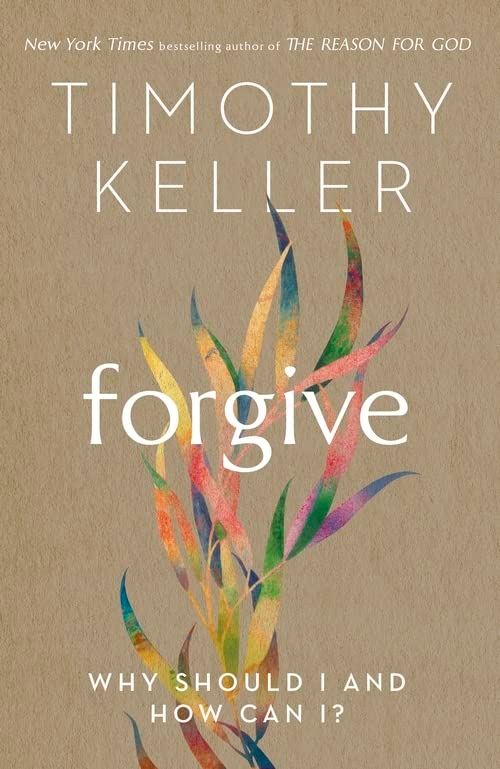Forgive – why should I and how can I? by Timothy Keller
The cross as both showing the love of God and satisfying the wrath of God is central to the author’s understanding of forgiveness
 Forgive – why should I and how can I?
Forgive – why should I and how can I?
By Timothy Keller
Hodder & Stoughton
ISBN: 978 1 473 64313 0
Reviewed by John Matthews
This book by an American evangelical, which is written in a readable style and clearly set out, is something of a curate’s egg. It begins with the parable of the unforgiving servant, of which the author says that ‘perhaps the most fundamental lesson...is that human forgiveness must be based on an experience of divine forgiveness’ (10). He later asserts that ‘You will never be able to forgive others their sins against you unless you first experience God’s forgiveness of your sins against him’ (137), which suggests that forgiveness is only possible for those who believe in God. But Keller goes further than this, stating that ‘Only...the doctrine of substitutionary atonement ...enables us to practice human forgiveness...Without this doctrine the vertical, divine dimension atrophies and human forgiveness becomes a mere hunt either for emotional freedom or for a kind of revenge’ (84f). Is this really so? The cross as both showing the love of God and satisfying the wrath of God is central to the author’s understanding of forgiveness.
Keller argues that human forgiveness involves naming what has happened as wrong, rather than excusing it, identifying with the perpetrator as a fellow sinner and willing their good, releasing the wrongdoer from liability by absorbing the cost of forgiveness, rather than seeking revenge, and aiming for reconciliation rather than breaking off the relationship for ever. There are, he says, three basic dimensions to Christian forgiveness; the vertical - God’s forgiveness of us, the internal - our granting forgiveness to another person, and the horizontal - our offer to reconcile.
Forgiveness is a promise not to keep bringing the matter up to the perpetrator, to others, or even to ourselves. Does this mean that we should forget it, or at least try to? There is no substantial discussion of the relationship between forgiving and forgetting or not forgetting, but Keller does say this: ‘”I’ve forgiven,” you say (meaning you aren’t actually seeking revenge), “but I can’t forget” (meaning that you are rooting for the person’s downfall and that you are still filled with resentment)’ (162). Does the inability to forget always mean this? Are there not some experiences so traumatic that they cannot be forgotten? Even some, like the Holocaust, which should not be forgotten?
The author is clear that forgiving someone does not mean that you instantly trust them; how long it takes to rebuild trust will depend on the severity of the offence. Neither does forgiveness mean that justice should not take its course - a particularly important point in relation to abusers.
There are four appendices which usefully summarise the contents of the book in bullet point form; forgiveness principles, biblical texts on God’s forgiveness, forgiveness practices, and reconciliation practices. The latter two provide helpful practical guidelines.
The text is supplemented by eighteen pages of endnotes, but there is no bibliography, and no indices of biblical texts, subjects and authors quoted, all of which would have been helpful.
John Matthews is a retired Baptist minister living in Rushden, Northants
Baptist Times, 12/01/2023